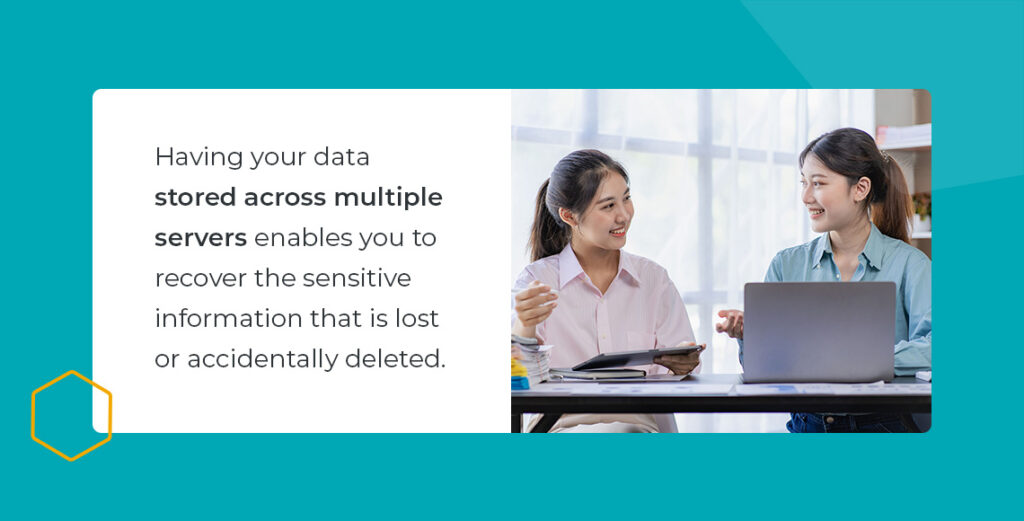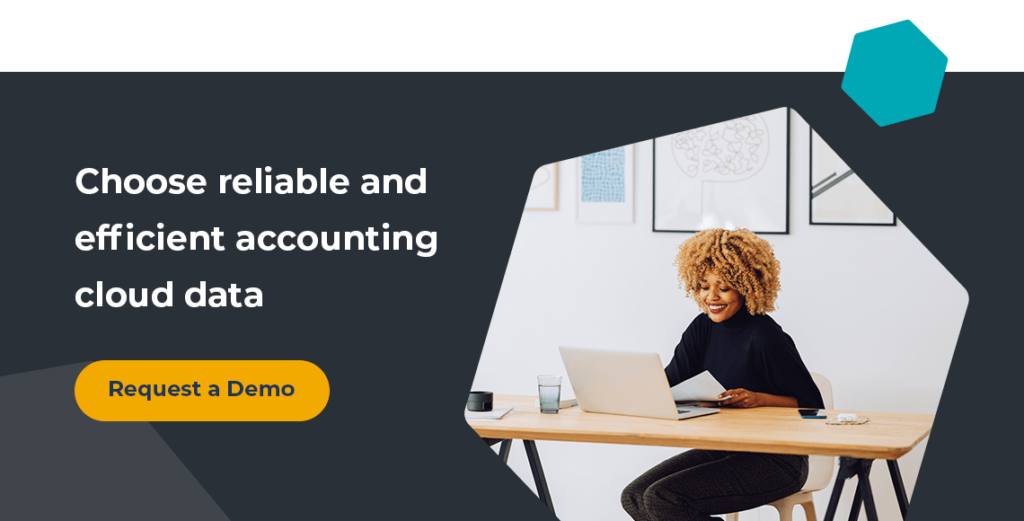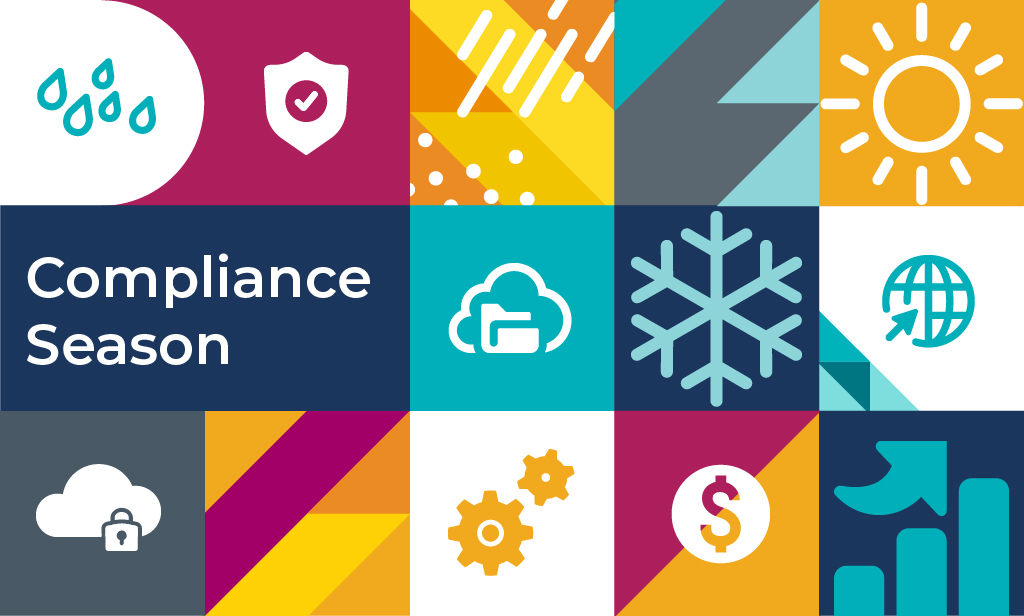Many organizations use cloud systems to store their accounting data. It is cost-effective, gives you flexibility, increases the capacity to store data and allows you to back up data in case it’s accidentally lost or deleted. Cloud accounting security is a genuine concern for any organization. Keeping your confidential information safely and securely will protect your organization from cyberattacks and other potential threats.
While these threats are a reality, it’s also important to know that many organizations use data storage without experiencing breaches. The proper education for your accounting team, secure cloud systems and IT compliance can ensure that your organization’s data stays safe.
Where Is the Cloud Data Stored?
Data stored in a cloud may sound like it is “up in the air” and foreign. However, cloud storage is a practice that more and more organizations are adopting — for example, the market for cloud applications is projected to grow at a rate of 4.8%.
An organization’s cloud data is stored in a third-party, off-site location. The owner of this location is responsible for hosting, managing and securing the data stored on its servers. As the data owner, your organization gains access via a private or public Internet connection.
Data servers take up a lot of space and are expensive to operate. Moving your data to a third-party host saves you capital and maintenance expenditures. Other advantages of a third-party host include scalability, flexibility and increased storage capacity.
What Are Cloud Security Accounting Threats?
Storing accounting data on the cloud does come with its risks. Let’s look at some of the concerns you may be considering:
- Loss of control: When you hand over your data to a third party, you trust them to store it securely and give you access when needed. Choosing reputable hosts with integrity will provide you with peace of mind that your data is in good hands.
- Cyber attacks: While cloud storage is secure, various access points through team member accounts leave data vulnerable to attacks. Areas of vulnerability include remote team members’ devices, public networks and unauthorized third-party applications.
- Limited visibility: Some cloud providers have complete control over an organization’s data, giving them little infrastructure access. Organizations need visibility to track their data and ensure that it is secured with integrity.
- Hybrid environments: Some organizations may spread their data across multiple servers, including on-location storage. Hybrid data storage is more complex to implement and requires more significant maintenance and a holistic approach to cyber security.
- Malicious insider attacks: Just as in person, insider attacks on the cloud can also occur. The attack may come from a third party seeking sensitive information, a disgruntled employee or even as a result of industrial espionage. A malicious insider attack can result in the loss of data and sensitive information, the installation of malware and the disruption of systems.
- Human error: Eighty-eight percent of cloud breaches result from human error. Employees may unknowingly cause breaches in data protection and cause accounts to be compromised. Through adequate security training, organizations can ensure these breaches don’t happen.
- Shadow IT: A threat related to any unauthorized software, IT resource or hardware that team members use on your organization’s network is known as shadow IT. To increase productivity or save time, some employees may adopt shadow IT. To minimize this threat, inform your employees which assets they can use.
Is Data Security Reliable on the Cloud?
Cloud security gives your organization peace of mind that your data is safe. While real threats exist, numerous organizations manage and store their data on the cloud securely. The key is working with a cloud service provider that you can rely on with good security features. Having your data stored across multiple servers ensures that copies are available to you and enables you to recover the sensitive information that is lost or accidentally deleted.

Other factors to consider when it comes to reliability include the following:
- Disaster recovery: Be it a natural occurrence or the loss of data, secure cloud systems allow you to recover your lost data quickly.
- Industry regulation compliance: Information safety rules vary across industries. A secure cloud system tailored to your organization has these compliances built into it.
- Automatic software updates: You can have peace of mind that your cloud system provider does software and security updates regularly.
What Are Cloud Security Best Practices for Your Accounting Team?
These cloud security best practices and principles will help your accounting team keep your confidential information safe and work efficiently on your cloud systems.
1. Access Security
While your cloud system provider secures your data, you’ll need to ensure that when your accounting team members access this data, they do so safely. Enhanced security measures include requiring the accounting team to use strong passwords that are changed regularly and using two-factor authentication.
2. Access Privileges
Accounting team members should only have access to the data they need to complete their roles. Members with a wide range of access to different accounts across your organization are vulnerable to cyber-attacks. When a team member needs access to highly confidential information, consider a process of granting access on request.
3. Employee Education
All organizations are vulnerable to phishing attacks, especially accounting teams with access to financial information. You may have software in place to filter these phishing emails, but there is always a chance that they may get through. Training accounting team members using real-life scenarios will equip them to spot these emails and keep your data from being compromised.
4. Monitor Employees With Extensive Access
Accounting team members, especially in senior roles, have access to data that is attractive to cyber attackers. Monitoring their cloud access for suspicious activity can help you protect your organization and hold team members accountable for safe IT practices.
5. Adequate IT Compliance
Every organization has a standard of IT compliance that team members are accountable for upholding. First, it is crucial to have systems that adhere to regulations, laws and general standards in your industry. If you have concerns about protecting your data, consider hiring a data protection officer to help you maintain compliance.
Request a Demo of MIP Cloud

You can count on our highly secure cloud systems to protect your data and comply with industry regulations. Our cloud environment is ideal for accounting professionals requiring a safe, reliable, innovative software solution. MIP Cloud is the SaaS fund accounting solution that your organization needs. The stand-out features of MIP Cloud Solutions include the following:
- 24/7 availability
- Multiple security layers, encrypted data and SOC compliance endorsed by AICPA.
- Real-time reporting
- Customizable elements to suit your organizational needs
- Compliance with law and industry standards
Choose reliable and efficient accounting cloud data, and request a demo today!
Share this post





